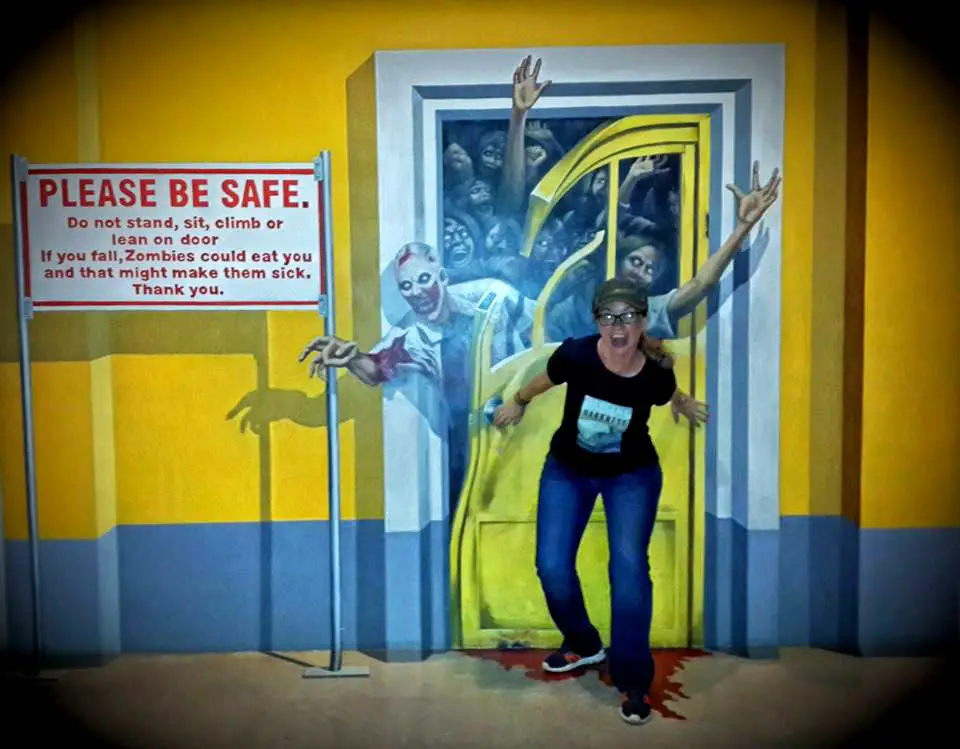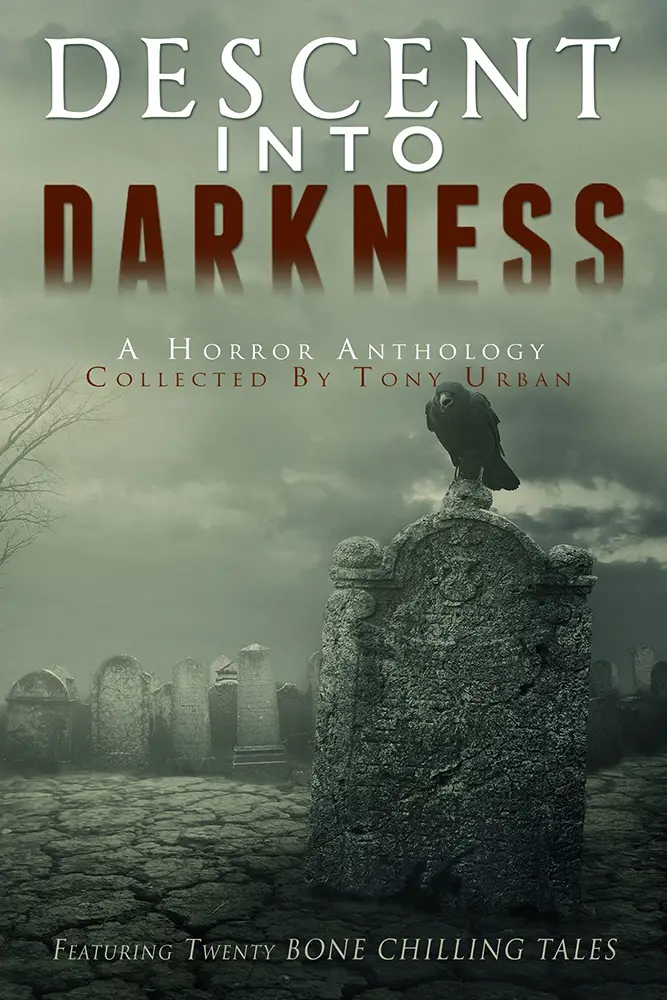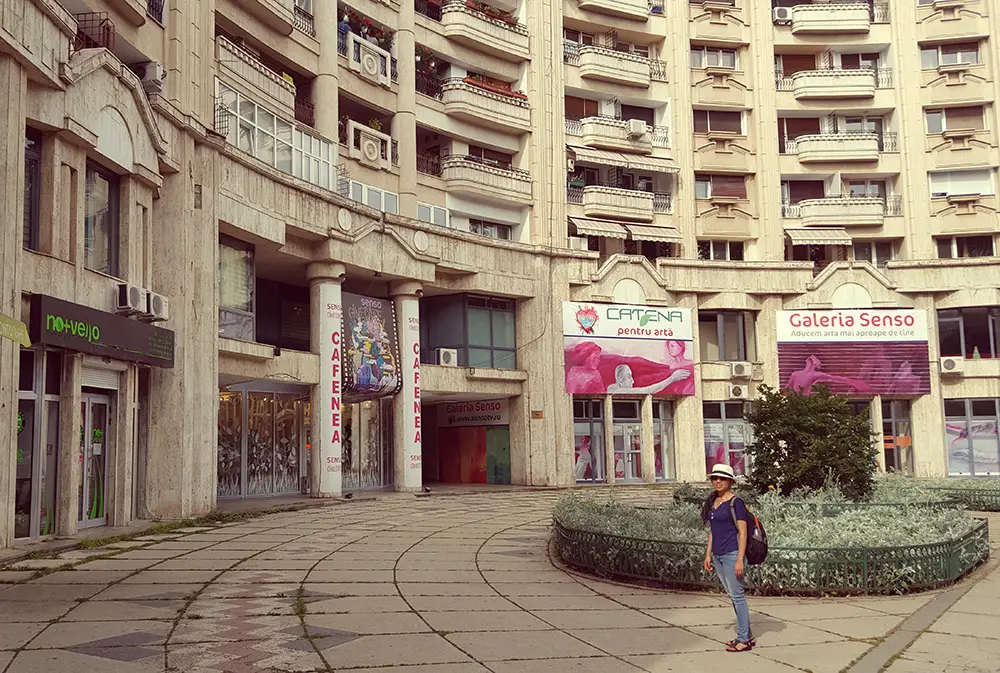Interview with Bangkok-based Romanian horror writer Delia Rai
Delia Rai is a Romanian horror writer and storyteller who has been living in Bangkok since 1999. In this interview she talks about her life as an expat writer in Thailand and her first published story “The Door” which appeared in Descent into Darkness, an anthology of “bone chilling tales” edited by Tony Urban.
We’re both from the same part of Romania, but you play the “Transylvania card” better. Isn’t this almost a cliché: Romanian horror writer from Transylvania?
It does sound like a cliché, but that doesn’t make it less true. I was born in Transylvania but my parents came to Bucharest soon afterwards and that’s where I spent the first half of my life. Since then I’ve been living in Bangkok, so defining “home” right now is not easy. It has become this hybrid, this Frankenstein if you like. I have great memories from summer holidays spent in the village near the town I was born in, and I feel a strong connection to that place, even after all these years. I was there on a short trip recently, and just seeing it all again, my grandparents’ house, the old church on a hill, the people, the forest I walked through as a child, in some ways it’s like I never left. Bucharest, Bangkok, they’re just cities and I’m fond of them but they will never mean as much to me.
What brought you to Bangkok and was it here where you started writing?
I’ve always loved writing, even as a teenager. I had an encrypted diary with a really silly code so no one could read it but me. I wrote poems, and countless letters to my friends throughout the country. I had pen pals – it was a “thing” back then. I still keep in touch with one of them.
It wasn’t until I moved to Bangkok that I started writing more. My husband was offered a job here. We talked about it but didn’t think too much, we were young and wanted to see other countries so we took the chance. We were supposed to stay for 2 years but it’s been 19 years and counting.
What was that defining moment in your writing life which pushed you to go all in?
I don’t remember a particular moment, but rather a series of small steps. In 2011 I started a blog to keep track of the books I read by writing book reviews and the odd post about traveling. I used to be very diligent about it but as I started to focus more on my writing, my reading has suffered. Now I’m concentrating more on short stories and less on book reviews.
Another thing that’s been crucial in making writing a priority was joining Key-Bangers, a Bangkok-based writing group where writers from all over the world meet and critique each other’s work. That’s been of tremendous help, because I had no idea if the stories made sense to anybody else other than me. I needed feedback.
Your debut as a horror short story writer was with “The Door” in Descent into Darkness (2017). Why did you choose “The Door” as your first piece?
I didn’t. My first choice was another story called “After You”, but after discussing it with my writing group and a few other people, I decided “The Door” fits better with the anthology. It’s difficult when you have a story that you like but doesn’t completely make sense to anybody else but you. “After You” is one of my favorite stories but it needs more rewrites.
I sensed a lot of Stephen King in “The Door”. How much of your writing do you think it’s really you as opposed to unconscious influences from your greatest favourites?
That’s hard to say. I’ve read a lot of Stephen Kind and I think being influenced by his stories and his writing style was inevitable. It was not something done intentionally, but I suppose you can’t read 20+ Stephen King books and then go on and write romance. Or maybe you can, who knows. One thing is certain, reading horror has made me want to write horror.
So how do you work on your craft then?
Sporadically, that would be the best term to describe it. If I don’t have an idea that I’m excited about, it’s torture, so I make sure the story I’m working on has a core that’s very appealing to me. I write down a few ideas, a name, then I take it from there. Sometimes I write longhand first, but most of my stories started and ended on my laptop. I work in short bursts, maybe half an hour or so, then I go do something else – eat, do the laundry, exercise – and come back to it. I read the previous day’s work to remember the feel of the story. Sometimes I go back and make minor changes, and typos drive me nuts so I have to fix them before I can move on. Writing the story is not the hardest part. That would be editing. Editing is hell. Deciding what to keep and what to cut and what more needs to be added and more importantly how it needs to be added in order for the story to work, that’s something I never liked to do. I bet there’s a room in writers’ hell with a door that says “Editing”.
What do you think of the expat fiction writing scene in Bangkok?
I think it has started to develop nicely in recent years. I have met writers who live in Bangkok and write full time, and what’s more important, they can earn a living doing it. There are also different groups organized through social media, who focus on different aspects of the writing and publishing process. Writers from all over the world come to our writing group, Key-Bangers, and bring all kinds of writing, not just fiction but also travel and memoir.
You’re working towards a collection of short stories. Who’s your harshest critic and what can we expect of this project?
My harshest critic and also my greatest champion is my husband. He will always tell me bluntly what he thinks of my writing. He can be quite harsh but I’m learning to detach myself from my work and not take it personal. It’s hard, but it needs to be done. I always try to tell myself, if you can’t take criticism from your husband what’s going to happen when other people will pick your writing apart? It’s better to get used to it.
There’s no fixed date of publication for the short stories. The plan is to get them out this year, around Halloween. I can’t be more specific than that at this point.
I know you’re working on your first novel… What’s it about and what stage are you at with your draft?
I wrote my first novel a few years ago during an insane NaNoWriMo month. I say insane because for someone who’s never had a writing routine or an outline for that matter, NaNo was tough and exhilarating.
My novel is a fairytale for the modern times. It’s not a retelling but a blend of fairytale-like elements and a future where such things as fairytales don’t seem possible anymore. It’s set in two different worlds connected by a common element, a natural element. There’s love and tragedy and lots of feeling.
I’m currently at that stage where the thought of editing it makes me anxious. I’d rather be cleaning the house, arranging my sock drawer or doing anything else. On the other hand it’s difficult to edit a short story, let alone a novel, and I feel like I’m at the point where I’d rather work on something shorter first. The novel needs at least two rewrites. Ask me again next year.
Connect with Delia on via Instagram, Facebook, or her website.



